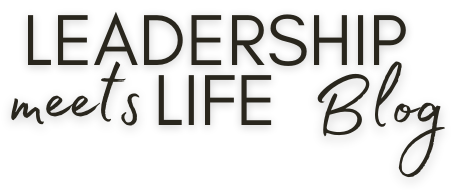.png?width=525&name=122617%20-%20Phil%20Bergey%20Blog%20Header%20(1).png)
With the end of the year, many people will be setting small and grand goals, ready to embrace the New Year. Whether it’s personal or business-related, from becoming more fit, to improving health habits, to starting a new venture or building a successful business, to raising a family, to writing a book—we all have things we want to achieve in our lives.
The effort to embrace resolutions demonstrates a beautiful sense of positive intent, but unfortunately, and quite predictably, many of these resolutions will be abandoned not long after.
The main reason people don’t achieve their resolutions can be the same reason people don’t accomplish their goals.
Almost 30 years ago author Stephen Covey popularized the notion of choosing influence as a focus of one’s activity, a concept that Todd Henry encouraged more recently in his book Die Empty: Unleash Your Best Work Every Day.
They both noted that trying to control things beyond your reach is a waste of time, energy and money, and that the more effective approach would be to consider and act on what you can influence.
Being proactive means you’re focusing your time and energy on things you can control, such as your health and lifestyle, relationship with your children and other people, and challenges at work. That’s your Circle of Influence.
Your goals have a higher chance of being achieved if you focus on problems, challenges, and opportunities that are within your Circle of Influence.
James Clear writes about the difference between goals and systems, and the benefits of leaders – or anyone – worrying less about reaching goals and instead focusing on systems.
Your goal can be to write a book; your system would be the writing schedule that you follow each week – and without the discipline of this system, your goal can hardly be achieved.
Having goals is having a direction, yet what matters long-term and what makes the difference is having a well-designed system and being committed to the process.
A restaurant’s ability to consistently create wonderful meals no matter when you visit is the result of commitments and values put into a system in which practice makes perfect.
“Once and done” concepts don’t serve us well – what wins is consistent influence, living our principles in the long run, and developing systems that operate day in and day out.
A good place to start is to define your improvement goals. They need be focused, important, and achievable, and the results worthwhile. Write them down. It can be for 30 days, 90 days, 6 months, or more. Then, create a plan for each week that will help you achieve those incremental goals by means of an overall system for success.
Be sure to stay accountable by hiring a coach, working with a mentor, or, if realistic, by being 100% honest with yourself and holding yourself accountable, always refocusing on your commitment to the larger patterns supported by shorter-term goals.
In their Immunity to Change model, Harvard Graduate School of Education professors Robert Kegan and Lisa Laskow Lahey suggest that the challenge and failure to meet our goals is not due to a lack of willpower, but may be the result of an emotional immune system that helps protect us from the possible outcome of a positive change.
To find our way to meaningful change and transformation, we’re invited to explore how sometimes unconscious behavior prevents us from achieving our change objectives, to study our perceived obstacles closely, and to shift our perspective.
So as you move through this holiday season, and as you make your annual resolutions and set goals, allow yourself to focus on what really matters and what you can influence, and then stay committed to the larger process.
To support you with personal and leadership growth, and to explore the benefits of different types of coaching, including executive coaching and leadership coaching, I invite you to contact me today.
